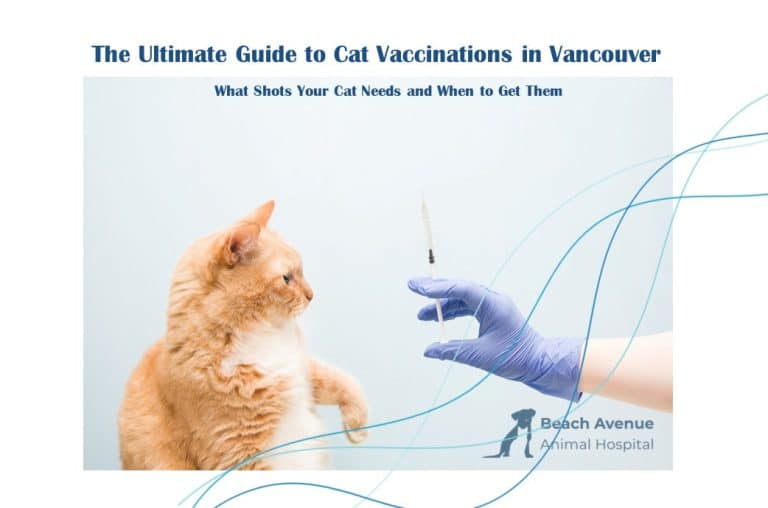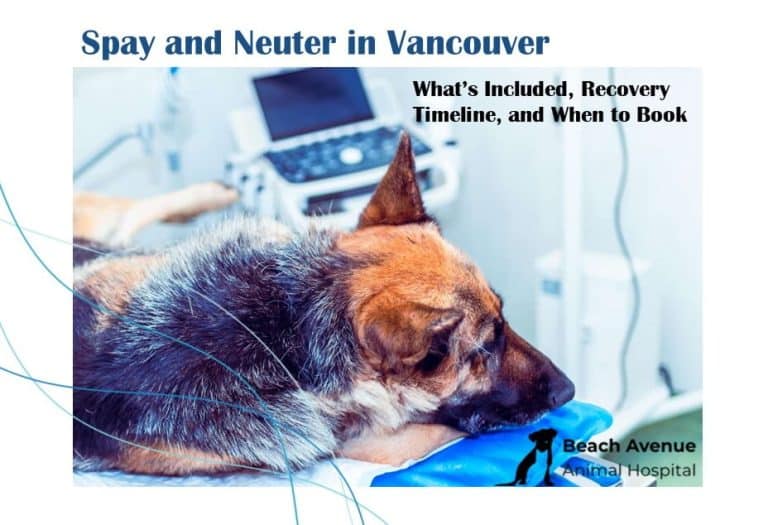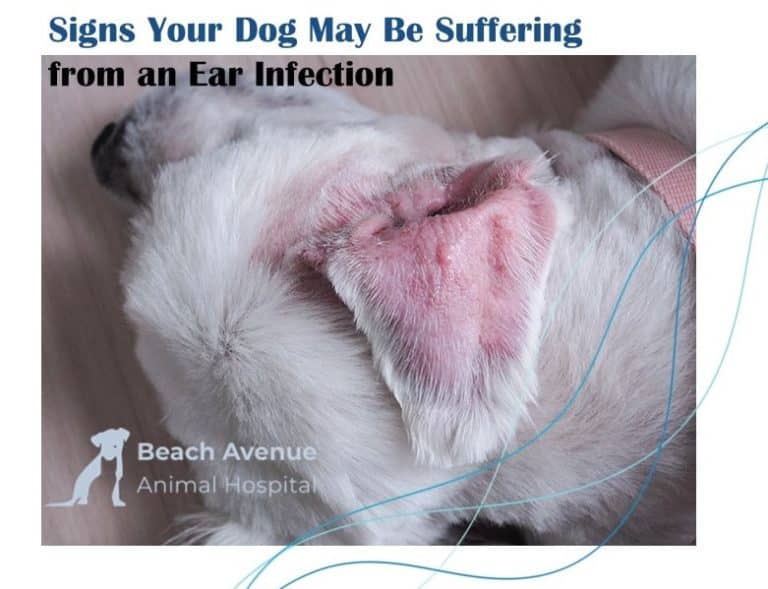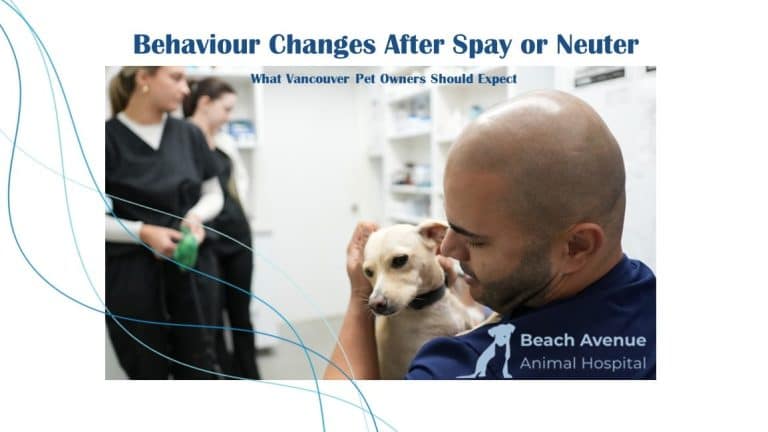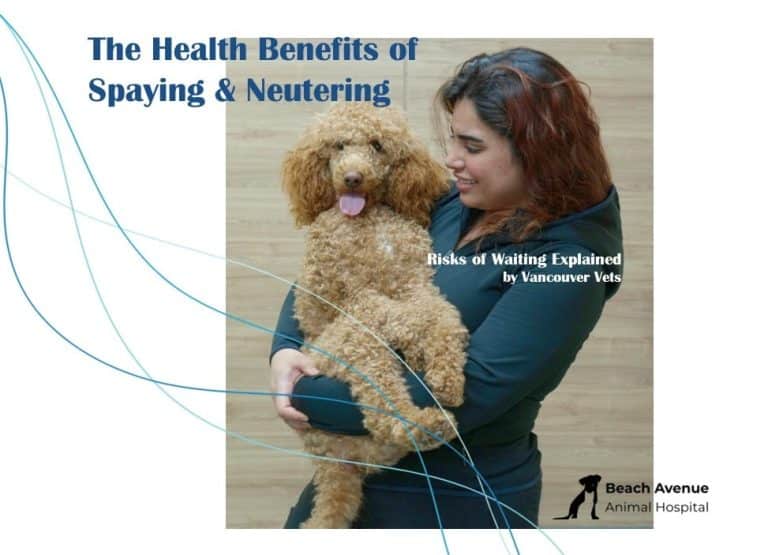For many Vancouver pet owners, one of the biggest questions is: “When is the best time to spay or neuter my dog or cat?” Timing matters. Spaying and neutering too early or too late can affect health, behaviour, and recovery.
At Beach Avenue Animal Hospital, we help families navigate this important decision. And because our Vancouver location is central and accessible, local pet owners trust us to provide advice tailored to their furry friend’s breed, age, and lifestyle.
General Guidelines for Spaying & Neutering Pets
Traditionally, cats are spayed or neutered at about five to six months of age, and dogs between six to nine months. These guidelines were widely accepted for decades.
However, newer veterinary research shows that the “best age” depends on species, breed, and size. For example, while most cats benefit from early spay/neuter, certain large dog breeds may do better if surgery is delayed until full skeletal maturity.
Best Age for Kittens in Vancouver
Kittens are usually ready for spaying or neutering by five to six months of age. Many veterinarians recommend completing the procedure before the cat’s first heat cycle, which can reduce the risk of mammary tumours later in life.
Spaying and neutering also helps avoid unwanted litters, which is especially important in cities like Vancouver, where overpopulation of stray cats remains a concern.
Learn more about our spay and neuter services.
Why Spaying Cats Before the First Heat Is Recommended
- Health benefits: Greatly lowers the risk of mammary cancer.
- Behavioural benefits: Reduces roaming, spraying, and vocalizing associated with mating.
- Population control: Prevents accidental litters, helping reduce pressure on local shelters.
Best Age for Puppies in Vancouver
For most small and medium dog breeds, spaying or neutering is commonly recommended between six and nine months. At this stage, they are mature enough for anesthesia and healing but young enough to avoid reproductive health risks.
Large and giant breeds, however, may benefit from waiting longer. Some studies suggest delaying spay or neuter until 12–18 months can support healthier joint development and reduce risks of orthopedic issues.
Our surgical services team always reviews breed, growth stage, and health history before making a timing recommendation.
Timing Differences Between Male and Female Dogs
- Female dogs: Spaying before the first heat cycle significantly reduces the risk of mammary tumours and eliminates the risk of pyometra (a life-threatening uterine infection).
- Male dogs: Neutering earlier often helps curb behaviours like marking, mounting, and aggression, while also reducing the risk of prostate problems later in life.
Risks of Early vs Delayed Spay/Neuter
There are pros and cons to both early and delayed surgery.
- Early spay/neuter: Helps prevent unwanted litters, lowers risk of reproductive cancers, and may reduce some behavioural issues.
- Delayed spay/neuter: In some large-breed dogs, delaying may reduce the risk of orthopedic conditions, but it increases the chance of reproductive diseases like pyometra in females or testicular cancer in males.
Special Considerations for Large Breeds in Vancouver
Popular breeds in Vancouver, like Labradors, Golden Retrievers, and German Shepherds, often require case-by-case evaluation. Waiting until growth plates have closed may support long-term joint health.
Our veterinarians will discuss breed-specific considerations with you so the decision reflects both science and your pet’s unique needs.
How Vancouver Vets Decide the Right Timing
There is no universal “best age” for every pet. Instead, veterinarians at Beach Avenue Animal Hospital consider factors such as:
- Breed and genetic predispositions
- Current health and medical history
- Lifestyle (indoor cat vs outdoor cat, active dog vs couch companion)
- Owner preferences and household environment
For example, an indoor-only kitten in Vancouver may safely undergo surgery at five months, while a large-breed dog might benefit from waiting until a year or more.
Supporting Recovery at Any Age
No matter when you decide to spay or neuter, proper recovery care makes the difference. Puppies may need more supervision to avoid overactivity, while adult pets may need extra pain control.
At Beach Avenue Animal Hospital, we offer laser therapy as an add-on to help pets recover more comfortably. This non-invasive treatment reduces inflammation, relieves pain, and accelerates healing, making it a popular choice among Vancouver families.
Conclusion: Age Is Important, but Individual Care Matters Most
Spaying and neutering is one of the most important steps you can take for your pet’s health. While general guidelines exist, the right age depends on breed, size, and lifestyle.
At Beach Avenue Animal Hospital, we provide individualized advice so you never have to make this decision alone. Whether you’re planning for a kitten, a small-breed puppy, or a large-breed dog, our team will guide you through timing, surgery, and recovery.
Ready to discuss the best age for your pet? Contact us today and book a consultation with our experienced Vancouver veterinarians.



